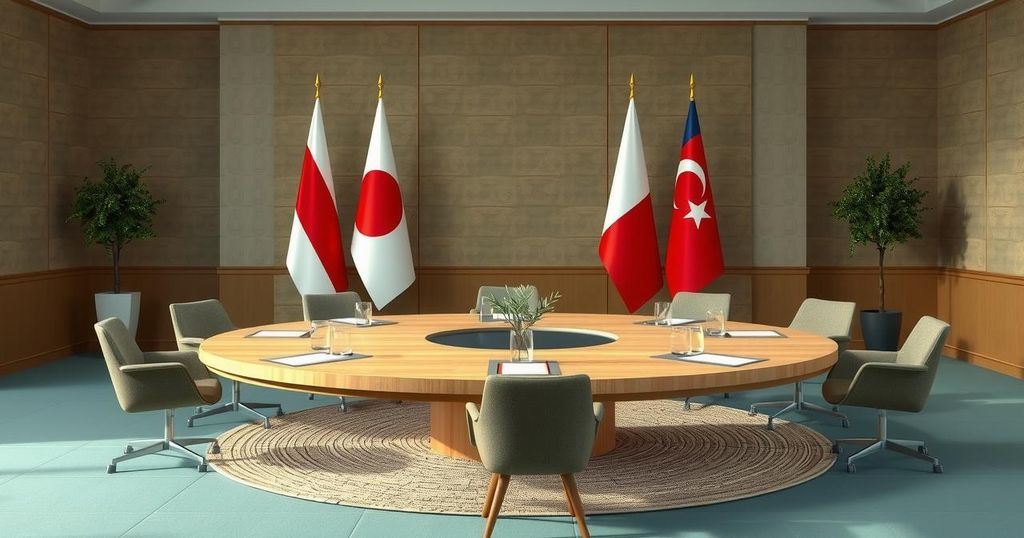Russia’s Perspective on International Diplomacy:Insights from Dmitry Polyanskiy
Dmitry Polyanskiy critiques the Biden administration’s role in the Ukraine war, asserting it contributed to the conflict’s escalation. He praises the Trump administration for its more realistic approach and highlights Saudi Arabia’s emerging role in diplomatic negotiations. Polyanskiy advocates for a two-state solution in the Israeli-Palestinian conflict while expressing support for Sudan and a peaceful transition in Syria, emphasizing the importance of friendship between Russia and these nations.
In a recent interview on the Arab News program “Frankly Speaking,” Dmitry Polyanskiy, the first deputy permanent representative of Russia to the UN, criticized the Biden administration for exacerbating the Ukraine war. He asserted that the previous American administration contributed significantly to creating an anti-Russia sentiment, escalating the conflict, which culminated in Russia’s military intervention in February 2022.
Polyanskiy noted that the Biden administration’s actions perpetuated the conflict, claiming it was actively seeking a strategic defeat of Russia. In contrast, he applauded the approach of former President Trump, describing it as more realistic and advantageous for peace negotiations. He stated that Trump’s administration had a better understanding of the battlefield dynamics, suggesting there existed viable routes to resolve hostilities that would benefit Ukraine.
Following recent talks in Riyadh, Polyanskiy communicated a favorable view of Saudi Arabia’s role in fostering international diplomacy, stating the kingdom has become an emerging center for diplomatic dialogue concerning the Ukraine conflict and beyond. He expressed appreciation for Saudi Arabia’s positive engagement in seeking an end to hostilities, emphasizing that Riyadh had contributed significantly to enhancing diplomatic efforts.
He also addressed other crises, indicating a need for unified action among Arab nations to resolve issues like the humanitarian crisis in Gaza. Polyanskiy reiterated Russia’s commitment to supporting a two-state solution for the Israeli-Palestinian conflict, criticizing attempts to normalize relations between Israel and Arab countries without adequately addressing Palestinian rights.
Discussing the ongoing situation in Sudan, Polyanskiy reaffirmed Russia’s support for the Sudanese authorities amid the conflict, highlighting military progress against opposition forces. He defended Russia’s veto of a UN resolution advocating a ceasefire, asserting that the document failed to properly distinguish between the Sudanese government and the opposing Rapid Support Forces.
In his comments about Syria, Polyanskiy addressed the implications of the Assad regime’s recent challenges and the potential for a peaceful transition that includes diverse representation among Syrians. He emphasized the historical ties between Russia and Syria, expressing confidence in maintaining constructive relations despite current upheavals, with aspirations to assist Syria in its development and stability.
Dmitry Polyanskiy’s remarks reveal a critical perspective on the role of the Biden administration in the Ukraine conflict, presenting a contrasting view with that of the previous Trump administration. He underscores the significance of Saudi Arabia’s diplomatic initiative and stresses the need for collaborative efforts in addressing crises such as Gaza and Sudan. Also, Polyanskiy asserts Russia’s commitment to aiding Syria during its transitional phase, reiterating the longstanding bond between the two nations.
Original Source: www.arabnews.jp




Post Comment